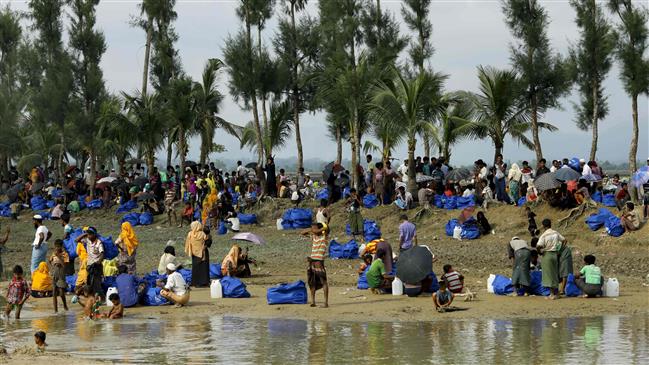
RNA - In brief remarks about the violence on Thursday, Suu Kyi said, “There are of course ways in which, with hindsight, the situation could’ve been handled better.”
She was quick to sound even softer about the military.
“But we believe that in order to have long-term security and stability, we have to be fair to all sides. We can’t choose who should be protected by rule of law,” Suu Kyi said.
Thousands of Muslims from the Rohingya community in Myanmar were killed, injured, arbitrarily arrested, or raped by Myanmarese soldiers and Buddhist mobs mainly between November 2016 and August 2017, when many of the surviving members of the community started fleeing to Bangladesh en masse.
A UN investigation into those acts of violence concluded last month that the military had had “genocidal intent” in carrying out the atrocities, implicating Myanmar’s army chief and five other top military commanders in crimes against humanity and genocide against the Rohingya.
According to Press TV, Suu Kyi has both failed to stop the genocide and has previously spoken in defense of the military.
Former UN rights chief Zeid Ra’ad al-Hussein suggested just before leaving office late last month that Suu Kyi herself was complicit in the crimes.
Ra’ad al-Hussein’s successor, the UN’s new High Commissioner for Human Rights Michelle Bachelet, has called for the establishment of “an independent international mechanism” to prosecute Myanmar’s crimes.
The plight of the Rohingya Muslims, long suffering in Buddhist-majority Myanmar, has attracted Western attention only recently.
The Rohingya — who have lived in Myanmar for generations — are denied citizenship and are branded illegal immigrants from Bangladesh, which likewise denies them citizenship but which has granted them refuge on humanitarian grounds.
847/940